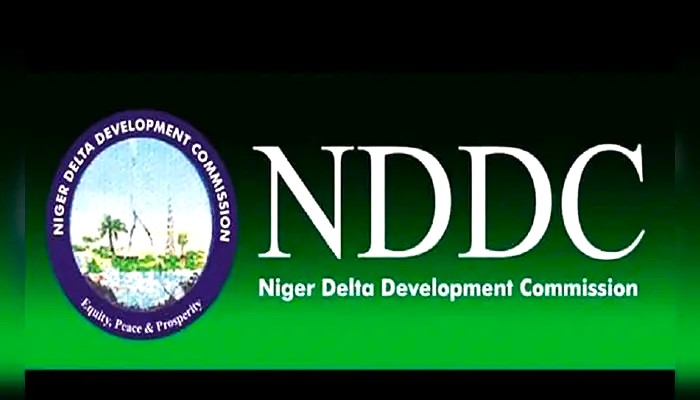Etokowo Owoh
At the inception of the current democratic experiment, the Obasanjo administration created the Niger Delta Development Commission. It was a policy response to the tension in the region which threatened oil exploitation and an understanding and appreciation by ex-President Obasanjo of the environmental diseconomies in the Region which was obviously unjustified.
That government went further to create the Ministry of Niger Delta Development to further douse the agitations of the Niger Deltans which seriously threatened crude oil exploitation. In the thinking of development experts, these policy thrusts were to direct Federal Government attention to the region in determined efforts to ameliorate the squalor and accelerate the transformation of the Region.
Whether the NDDC, and the Ministry, have lived up to the remediation of those ecological hazards and development expectations is a subject of serious interrogation by the stakeholders. Suffice it to say, that by now one expected the erection of regional development signposts in terms of star projects and programmes that would have catapulted the Region to a new development block in the country given its humongous resources.
Related post: NDDC’s Chairman in dire straits over alleged illegal appointment
In recent times, we have seen the creation of development commissions akin to the NDDC – the North East, North West and South West Development Commissions. Perhaps, two more will be added. Along with this is the change in name and role of the Ministry of Niger Delta Development to Ministry of Regional Development. Could it be that the other Regions are envious of the NDDC and now want a replication of the same structure in their regions? Or, is it the success story of the NDDC that has generated these interests? Whatever, it should be borne in mind the fundamentals that informed the NDDC and its enabling law which narration is unique to the circumstances of the Niger Delta Region.
Deriving from there is its Board and management structure which are based on its oil resource balance and peculiarities. Ditto for its funding which is unique, justified and reflective of the historical antecedents that gave birth to it. This reminder is very germane and timely as one hopes this new arrangement is not a counterpoise and a back door abrogation of the NDDC or the dilution of its importance because those conditions that informed the NDDC creation are still very much with us.
Having said this, efforts to birth a more politically functional nation must take cognizance of the reality of the national question which lies within the precinct of poverty and benign inequality that has been our lot over several years. No matter how we break the nation into its minute pieces, true nationhood will remain elusive until we reflect seriously on ways of escape from the spiraling and excruciating poverty that has plagued this nation, particularly since the IBB’s Structural Adjustment Programme of the 80s.
Breaking the nation into organic parts, as important as it may be, and for administrative convenience, will not cause the scourge of poverty to evaporate just like that because there is no guarantee that new regions, new states, new LGAs, etc. will deal with the blight of economic hardship in the country. At best, it will reduce tension tenuously pending another round of economic challenges.
Without serious thought being given to the restructuring of our economic fundamentals such that we achieve a non-inflationary fiscal/monetary policy regime, we will be making motions without movement in our drive to a stable statehood.
We must re-calibrate our capitalism from consumption to production and accord local industrial capacity, in magnitude and direction, preeminence. We have to deliberately loose taste for unbridled imports while rooting for self-sufficiency. Whatever we cannot produce should not excite us except for a few essentials such as industrial goods and raw materials. That would mean listening to the neo-liberal theories of the Bretton Wood school. Economics is not entertainment business where loud ovation is needed from foreign audience. Liberalization has its time in history; not when we are building the foundation for development sustainability.
However painful it may be in the short-run, we must embrace the mantra of produce or perish. That is the road to travel. It is a route which guarantees hope that we shall escape from hard times in the future; a route that most developed nations took yesterday to arrive at the shores of prosperity today. Let us not delude ourselves, creation of regions, states, local governments will not, on its own, usher in prosperity if such is not rested on a well-articulated economic principle that underscores growth and development anchored on local production.
We should by now be asking why it is that Nigerians seem to see nothing good in their governments from regime to regime. We are not incurable pessimists. It is the lack of equity and justice on the economic front and the hackneyed song chorusing belt tightening vis-a-vis a profligate lifestyle of our leaders, corruption and impunity that have led to trust deficit in our socio-political system.
After the debacle of SAP and repeated failure of subsequent economic engineering, Nigerians have become circumspect and hard to convince. Because of these, people easily retire to their ethnic enclaves and religious cocoons in search of solace. This is not likely to abate until hope is genuinely rekindled on the economic front. What keeps people of various cultural persuasions together is their shared prosperity. Nobody wants to share poverty. Nigeria’s political gerrymandering, without singling out any particular regime, is like the Ostrich that leaves its anus exposed while burying its head in the sand.
Owoh is a Researcher, Public Policy Analyst, Author and Management Consultant.

